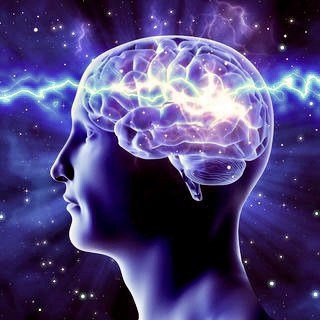The ability to enter the trance state instantly is the basis of hypnosis
What is hypnosis? How does it feel?
Whether we accept it or not, our reality consists of our beliefs, thoughts, and spirits.
In other words, what you think most begins to appear in your life, and if this is true, you can use your thoughts to create exactly the reality you want with precision.

What are Brainwaves?
These are the natural internal rhythms of the brain. Hypnosis and brainwave patterns change with activities such as relaxation, problem-solving, and sleep. Different regions of the brain can be involved in various activity levels, but one of these patterns is always dominant.
There are four main brain wave patterns (1. beta, 2. alpha, 3. theta, 4. delta) and a fifth lesser-known pattern (5. gamma).
1) Beta (14-40Hz)-Awakening of Consciousness and Waves of Reasoning
Beta waves are associated with ordinary awakening consciousness and an increased state of alertness, logic, and critical reasoning. This is the state we feel as we work, talk, and interact in our daily routine.
Beta brain waves are essential for useful daytime function, but they can also cause stress, restlessness, and anxiety.
2) Alpha (7.5-14Hz)-Deep relaxation waves
These brain waves are present in deep relaxation, usually when the eyes are closed, indulging in beautiful fantasies or light meditation. It’s the perfect time to program your mind for success, enhancing your imagination, visualization, concentration, memory, and learning.
It is the gateway to your subconscious and is the basis of your awareness in subconsciousness. Alpha’s voice is your intuition and becomes more precise and more profound as you approach 7.5Hz. This is the best condition for hypnosis. This is when the constant chatter in beta has stopped significantly, and the subconscious mind accepts suggestions.
3) Theta (4-7.5 Hz)-Light meditation and sleep waves
Theta brain waves exist between deep meditation and light sleep, including the most critical REM dream state. It’s the realm of your subconscious, and you’ll only experience it for a moment when you fall asleep from Alpha and wake up from deep sleep (from Delta). The most rooted program in your mind is in Theta, where you will experience vibrant visualizations, great inspiration, profound creativity, and extraordinary insights.
4) Delta (0.5-4Hz)-Deep sleep waves
The delta frequency is the slowest of all and is practiced in a dreamless, deep sleep. The Delta is the realm of your unconscious mind, bringing it to the collective unconscious where the information received is not available at the conscious level. Often, deep sleep is essential to the healing process as it is associated with deep healing and regeneration. When people can’t sleep well enough, it’s terrible for their health in one or more ways. Hypnosis is not useful when you are in a delta state despite the very active subconscious mind because you cannot hear the suggestions given. This is an era when the subconscious mind is like a computer. Sort, file, organize and discard data.
5) Gamma (40Hz and above)-Insight Wave
This range is the latest discovery and is the fastest frequency beyond 40Hz. Little is known about this mood, but early studies have shown that gamma waves are associated with intuitional bursts and high information processing levels.
Optimal Brain Wave States for Hypnosis

Alpha brain waves bridge the conscious mind (beta or gamma brain waves) and the subconscious (Theta or delta brain waves). People who experience mild trance with hypnosis may be in an alpha state. Those who fall into a deep trance state are more likely to be in a Theta brain wave state and are always perfect no matter how they experience trance.
If you’re awake and thinking, but you’re relaxed and don’t actively solve the problem, you may have an alpha brain wave.
Beta brain waves lead most of our daily lives. This is a state in which we are firmly conscious and actively engaged in mental activities such as reading, conversation, thinking, and calculation. Interestingly, staying in the beta-wave mental state for a long time can be overwhelming and stressful. Relaxing changes the state of the brain waves and relieves those emotions.
Although gamma state is not fully understood in neuroscience, it is essential in learning, memory, and processing and generally implies complex manipulations and acute concentration.
There is nothing strange about trance, as it is a state of mind that humans practice often, either they are aware of it or not. The hypnotherapist’s skill is to gently guide communication with the client’s subconscious while the client is in a trance, successfully reveal blocked energies, and solve specific problems.
The Power of Hypnosis
Achieving trance’s mental state is itself rewarding. It’s peaceful, safe, and calm. Trances change and expand our sense of time. A rational mind structure does not limit our thinking. But perhaps the most beautiful, in the trance state, the subconscious mind begins to communicate through images and metaphors. Our consciousness exists and is observing, but our subconscious mind provides information and receives suggestions.
To Book Your Hypnotherapy Coaching Sessions :
https://www.durganihantri.com/private-coaching
Leave a Reply
You must be logged in to post a comment.